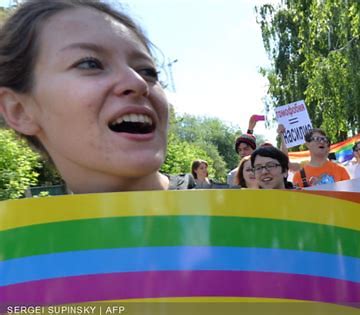
SAFEBOW, a grassroots organisation set up by Rain Dove and other activists, has helped more than 4,000 refugees from marginalised groups – including LGBTQI+, disabled, and elderly people, as well as Indian, African and other international students who were studying in Ukraine – leave Ukraine since Russia’s invasion began.
The initiative started when Rain Dove and other LGBTQI+ activists outside Ukraine began messaging with Ukrainians who reached out asking for assistance through social media platforms during the early days of the war. “We formed WhatsApp groups. We thought it would only last a couple of weeks,” Rain Dove said.
SAFEBOW soon grew into a network of over 200 volunteers around the world, according to Rain Dove. But as the fighting intensified, more reports emerged of marginalised people being unable to leave Ukraine.
The medical and legal process to transition genders is long and complicated in Ukraine, but many of the trans people SAFEBOW has assisted believed they had the required documentation to leave – such as medical exemptions – but were still turned away. Ukrainian border officials seem to make decisions on whether to allow trans people to leave on a case-by-case basis, according to activists.
“Others cannot leave because their homes and medical documents were destroyed,” explained Rain Dove.
Ukraine’s State Border Guard Service has said that the ban on men between the ages of 18 and 60 leaving the country, which is the reason why some LGBTQI+ people have been turned back at the border, is necessary in order to provide for Ukraine’s defence.
“Martial law is sexist. Period,” Rain Dove said. “It needs to be reshaped. It leads to black-and-white choices, with nothing in between. People should want to stay, not be forced to stay, especially when they have the documentation to leave.”
Rain Dove’s eagerness to help led them to the Ukraine-Poland border in mid-March, where they were assisting Dima and Alice as an individual activist, not as a part of SAFEBOW. Rain Dove and Alice’s partner, Robin, had been in Lviv but crossed the border into Poland through the official border crossing.
They knew that volunteers and activists have faced criminal charges for providing humanitarian assistance to refugees, asylum seekers, and migrants at the EU’s external borders, including in Poland, and wanted to try to avoid being charged if they were caught helping Dima and Alice.
But when they rushed into the river to help Alice, Rain Dove and Robin inadvertently crossed back into Ukraine. “It was a medical emergency, and we did what we had to do,” Rain Dove said.
After getting out of the river, the group walked over three kilometres looking for their driver but didn’t realise they were walking in the wrong direction. When the group made it to a road, they flagged down a car, which ended up belonging to the Polish border guard.
The group was taken into custody and spent several nights in jail. Rain Dove and Robin were sentenced to two-year probation for their role in helping Dima and Alice enter Poland. Alice was also given one year of probation.
Despite being arrested and charged, Rain Dove continues to support LGBTQI+ refugees trying to leave Ukraine. They are adamant that “no one should ever have to do that alone”.
Despite the overall warm welcome extended to Ukrainian refugees in Poland, LGBTQI+ refugees are unlikely to find safe haven even after they enter the country, according to activists. Homophobia and transphobia have increased in Poland in recent years, and since January 2020 more than 100 Polish municipalities have declared themselves “LGBTQI+-free zones”.
Organisations and activists in Poland are encouraging LGBTQI+ refugees to move on to Germany or the Netherlands.
The Polish capital, Warsaw, is more open and accepting, but the city’s population has increased by more than 15 percent due to the arrival of Ukrainian refugees, and housing for new arrivals is now hard to come by. “Warsaw is safer, but refugees can’t even stay in Warsaw,” said the Polish LGBTQI+ activist who asked to remain anonymous.
As a result, LGBTQI+ organisations and activists in Poland are encouraging LGBTQI+ refugees to move on to Germany or the Netherlands. Unlike refugees from the Middle East, South Asia and Africa, who are required to apply for asylum in the first EU country they enter, Ukrainians – including those who are LGBTQI+ – can move freely within the EU under a Temporary Protection Directive passed in early March.
Groups, such as the Organization for Refuge, Asylum and Migration (ORAM), Casa Kuà and Quarteera are working to fill protection gaps and secure safe accommodations for LGBTQI+ Ukrainian refugees who do move on.
Interviewed Limon, senior programme manager at ORAM, said that the group has organised over 800 nights of housing for LGBTQI+ refugees, mostly in Berlin, but also in Prague, Lisbon, and elsewhere in Europe.
So far, much of the assistance has been provided by volunteers, but as the war drags on and the displacement of LGBTQI+ refugees from Ukraine becomes a protracted issue, the organisations are aware that there is a need for more institutionalised assistance.
“There is a need for full-time case managers in order to ensure support is sustainable,” Ibrahim Willeke, founder of SOFRA – Queer Migrants e.v in Germany, explained.
- The New Humanitarian report











